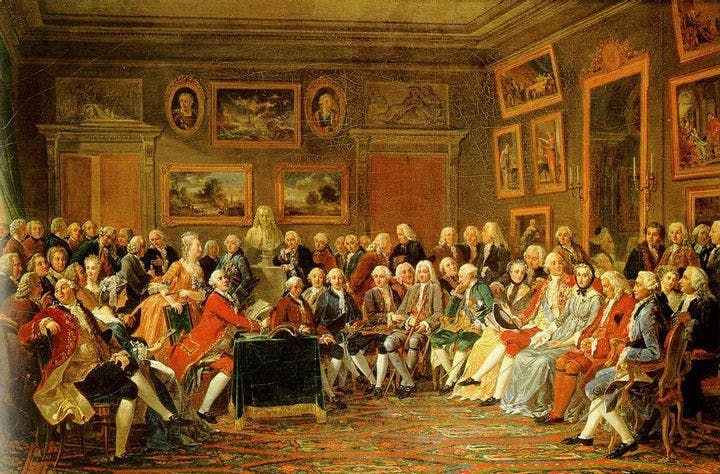Winter 2013
The way we think about the Enlightenment is Eurocentric and wrong
– The Wilson Quarterly
The way we think about the Enlightenment is not enlightened.
Move over, Voltaire, and make room for Yu Kilchun, Rammohan Roy, and a host of other strangers in the Enlightenment pantheon. Scholars and intellectuals have been hacking away at the Enlightenment for years, arguing that the “age of reason” was just a mirage or a cleverly veiled vehicle of oppression. Now Sebastian Conrad, a historian at Berlin’s Free University, argues that the very idea that the Enlightenment was solely a European creation is wrong.
The great ideas of the Enlightenment — individual rights, secularism, the belief in science — were not merely invented in the West and disseminated elsewhere, Conrad contends, but continuously reinvented around the world. And the Enlightenment didn’t end in 1800, as standard accounts say, but continued into the 19th century and beyond. As if to blur the old boundaries, Conrad often speaks of Enlightenment rather than the Enlightenment.
“Much of the debate about Enlightenment in Europe can be understood as a response to the challenges of global integration” as European explorers’ contacts with the Indians of North America, China’s Mandarins, and others raised new questions about human existence. But it wasn’t a one-way street. During the French Revolution, the National Assembly “explicitly denied the extension of civil rights to slaves.” It was only after a 1791 slave revolution in their Haitian colony that the French were compelled to rethink their position. Three years later, they abolished slavery.
It’s condescending and “Eurocentric,” Conrad continues, to cling to the traditional notion that the Enlightenment ended around 1800, because doing so excludes others’ contributions. “Whenever we open our mouths, it is to speak of ‘enlightenment,’” Japanese reformer Tsuda Mamichi (1829–1903) declared in the 1870s.
That’s not to say that non-Western experiences of Enlightenment always shared the same principles with their Western counterparts. Tsuda, for example, argued that Christianity was the vehicle of Enlightenment, precisely the opposite of what thinkers such as Voltaire and Denis Diderot believed. India’s Rammohan Roy (1772–1883) was a reformer who also defended Hinduism.
As it developed beyond Europe, Enlightenment came to be linked less to freeing individuals from the fetters of church and state than to “collective and national projects” of improvement, according to Conrad. Often modernizers grafted new ideas onto existing traditions. “In Japan, the term ri, which in Confucian thought denotes the principle that bestows order and harmony on human society, was used to express the idea of laissez-faire and the rationality of market exchange.”
Ultimately, Conrad concludes, “it was only this process of global circulation, translation, and transnational coproduction that turned the Enlightenment into the general and universal phenomenon that it had always purported to be.”
THE SOURCE: “Enlightenment in Global History: A Historiographical Critique” by Sebastian Conrad. The American Historical Review, Oct. 2012.
Cover photo courtesy of Wikimedia Commons
